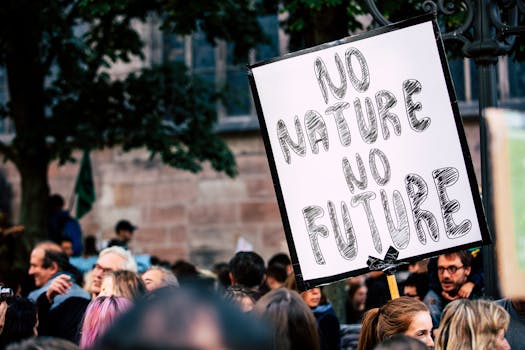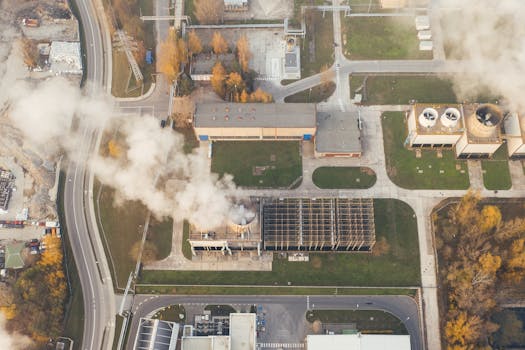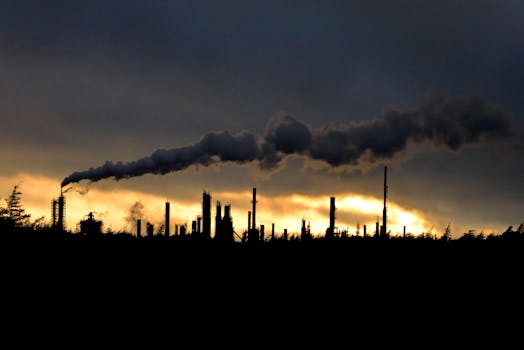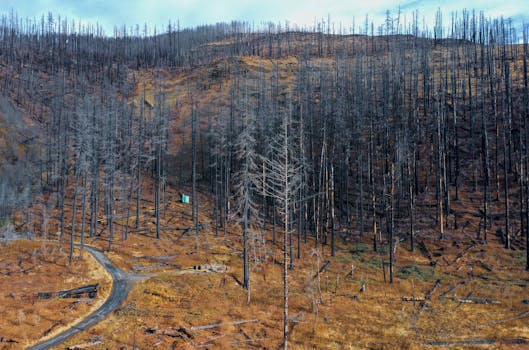
Climate Change: Understanding Its Immediate and Long-Term Impacts

Climate change has evolved into one of the most pressing issues of our time, with impacts felt globally in various forms. Rising temperatures, unpredictable weather patterns, and increasing sea levels signify alarming trends arising from this complex phenomenon. Across the world, we witness loved ones grappling with the increasing frequency and intensity of natural disasters, such as hurricanes, wildfires, and droughts. Scientific studies confirm that these intensifying events are not independent of climate change, urging immediate attention and action.
Additionally, the oceans are turning warmer and more acidic, affecting marine biodiversity. As vital ecosystems shift or collapse under rising sea temperatures, the implications can be distressing for food security, economies, and cultural identities, particularly for coastal communities that depend on fishing and tourism.
The Effects on Biodiversity and Ecosystems

Ecosystems across the globe are becoming increasingly precarious as species struggle to adapt to rapid climate changes. Habitat loss caused by wildfire expansion, shifting coastlines, and altered migratory patterns portends a cascade of ecological imbalance, threatening both wildlife and the services ecosystems provide to humans.
Furthermore, relationships between species, such as predator-prey dynamics and plant-pollinator interactions, are disturbed. Some species may become extinct as their natural habitats transform at an uncontrollable pace, prompting biodiversity experts to sound urgent alarms about acts of conservation needed to safeguard vulnerable species under immense threat due to climate change.
The Role of Environmental News Coverage

In tandem with understanding the facts of climate change, it’s crucial to examine how these truths are communicated. Environmental news coverage often dictates the public narrative surrounding crucial issues related to climate change. While reputable media outlets aim to inform audiences responsibly, sensationalist reporting can muddle impacts, creating misconceptions about the realities we face.
Effective reporting must transcend partisanship to accurately depict the science behind global warming. Comprehensive coverage, encompassing local climate stories, scientific research advancements, and climate policy developments, equips individuals and communities with the knowledge they need to advocate for reform.
Challenges and Opportunities in Climate Journalism

Various challenges beset journalists reporting on climate change. For instance, developing narratives around complex scientific concepts can provoke confusion among audiences, pushing the need for precisely worded explanations. Additionally, political influence often attempts to discredit scientifically supported facts, flooding media channels with misleading rhetoric.
Nonetheless, the burgeoning world of digital media offers journalists unprecedented access to organize, translate, and distribute information effectively across diverse platforms. Investigative reports utilizing multimedia approaches can create visceral insights into climate phenomena, helping lift environmental topics out of niche spaces and weave them into broader discussions on policy, ethics, and community resilience. Among the formidable testimonials offered by grassroots movements, journalists mean to catalyze activism that instigates substantive changes.
The Way Forward: Reinforcing Climate Change Awareness

Achieving a well-informed global population networking around enlightened activism will hinge above all on trustworthy and clear journalism that elucidates the effects of climate change effectively. Media avenues, creative platforms, and educational initiatives match opportunities ripe for awareness, insisting critical thinking amidst increasing cynicism regarding information origins.
By encouraging community discussions rooted in factual education and making channels available for deliberative engagement built through balanced dialogue about possibilities hitching mitigation initiatives, crucial barriers brought on by a phase of accelerating climatic upheaval will have a fighting chance to piece together resilience today for the impact on future generations yet unknown.



